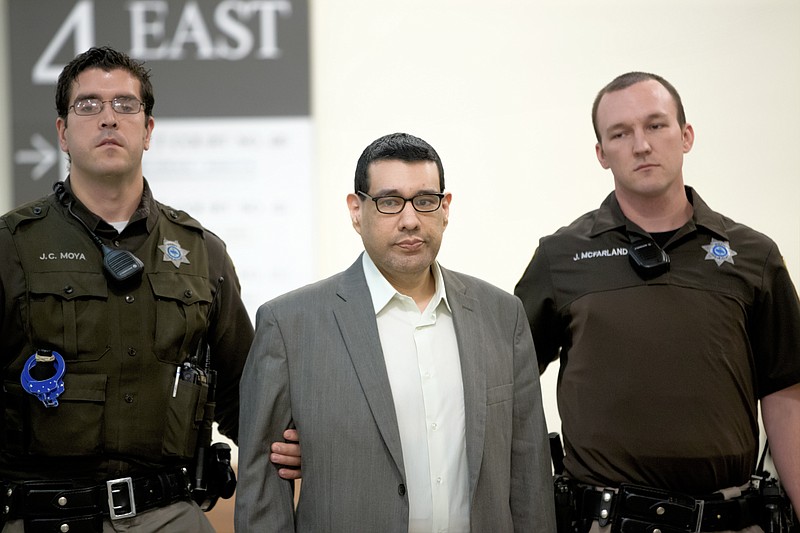OMAHA, Neb. (AP) - It was a mystery that many thought might never be solved: Who savagely stabbed to death the 11-year-old son of two medical doctors and the family's housekeeper in 2008 in one of Omaha's most affluent neighborhoods?
After years of delays, opening statements are expected Monday in former doctor Anthony Garcia's trial for those deaths and the 2013 killings of another Omaha doctor and his wife. Prosecutors say the crimes were motivated by Garcia's long-simmering rage over his firing from a Creighton University School of Medicine residency program in 2001.
The first-degree murder case has been marked both by the brutality of the crimes and courtroom sparring. One Chicago defense attorney was kicked off the case and prosecutors have had to defend themselves from accusations of misconduct.
It's all led to years of delays as Garcia, 42, has undergone two mental health evaluations and four different trial start dates. He faces a possible death penalty if convicted.
"Everybody's put their lives on hold for three years," said Brad Waite, of Omaha, brother of Shirlee Sherman, the housekeeper who was killed in 2008. "Family members take off from work and buy plane tickets, only to get here and have it postponed again. We've been reliving the tragedy for three years."
Fernando Garcia, 37, of Walnut, California, said he and other family members plan to attend his brother's trial and that he "still feel confident in his innocence."
The tragedy began the afternoon of March 13, 2008, when 11-year-old Thomas Hunter and the 57-year-old Sherman were stabbed to death inside the Hunter family's home in the upscale Dundee neighborhood. Their bodies were discovered that evening by the boy's father, Dr. William Hunter, who works in Creighton medical school's pathology department.
The killings remained unsolved for years, with no arrests or even suspects, despite a $50,000 reward for information and a segment on the TV show "America's Most Wanted."
Then, in May 2013, another Creighton pathology doctor, Roger Brumback, and his wife, Mary, were found slain in their Omaha home. Roger Brumback had been shot and stabbed; his wife was stabbed to death.
This time, more evidence was left behind. Police say they found parts of the gun used to shoot Brumback inside his home that matched a handgun Garcia bought in March in Terre Haute, Indiana, where Garcia has been living. Police also noticed the killer used knives found at the homes in both attacks and used similar slashing motions on all the victims.
A motive also emerged: William Hunter and Roger Brumback had together fired Garcia from the Creighton residency program in 2001 for unprofessional conduct and later wrote letters that kept him from being accepted to other residency programs and approved for medical licenses in other states.
More digging turned up credit card purchases and a cellphone call made by Garcia in Iowa, about an hour away from Omaha, on May 12, the day the Brumbacks were killed. Police arrested Garcia two months after the Brumback killings.
A search of the Brumbacks' home address was found on Garcia's tablet computer, prosecutors have said, and authorities have linked him to an attempted break-in at another Creighton pathology department doctor's home the day before the Brumbacks' deaths.
With up to six weeks set aside for the trial, Fernando Garcia worries about the effects it will have on his parents. His 70-year-old father has been in poor health in the last year, he said.
"We feel bad for the victims' families," he said. "I know they probably view things a little differently. They want justice. So do we."
